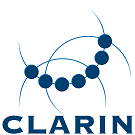Dictionaries: Difference between revisions
| Line 24: | Line 24: | ||
Words have histories. They come into existence, develop and adapt to changing circumstances. They may disappear again, after a brief or longer period of time. The research into the origins and history of words is a discipline called etymology. | Words have histories. They come into existence, develop and adapt to changing circumstances. They may disappear again, after a brief or longer period of time. The research into the origins and history of words is a discipline called etymology. | ||
Etymological dictionaries specifically describe the origins of words. The most recent etymological dictionary is the Etymological Dictionary of Dutch (Etymologisch Woordenboek van het Nederlands – EWN), which was partially compiled at the former Institute for Dutch Lexicology (INL). Our dictionaries of Old Dutch and Middle Dutch similarly tend to include etymological information. A useful website is www.etymologiebank.nl, where information taken from a large number of Dutch etymological sources has been brought together and made accessible. The Dictionary of Contemporary Dutch (Algemeen Nederlands Woordenboek – ANW) also contains etymological information, but only for the new words (neologisms). The same goes for the dictionary of neologisms that we are in the process of compiling. The etymology of neologisms is often clearly determinable. | Etymological dictionaries specifically describe the origins of words. The most recent etymological dictionary is the Etymological Dictionary of Dutch (Etymologisch Woordenboek van het Nederlands – EWN), which was partially compiled at the former Institute for Dutch Lexicology (INL). Our dictionaries of Old Dutch and Middle Dutch similarly tend to include etymological information. A useful website is [http://www.etymologiebank.nl Etymologiebank]www.etymologiebank.nl, where information taken from a large number of Dutch etymological sources has been brought together and made accessible. The Dictionary of Contemporary Dutch (Algemeen Nederlands Woordenboek – ANW) also contains etymological information, but only for the new words (neologisms). The same goes for the dictionary of neologisms that we are in the process of compiling. The etymology of neologisms is often clearly determinable. | ||
Revision as of 14:57, 26 November 2020
Dictionary of Contemporary Dutch
The Dictionary of Contemporary Dutch (Algemeen Nederlands Woordenboek or ANW) is an online monolingual dictionary covering the period from 1970 until now. It describes the general Dutch language in the Netherlands, Flanders, Suriname and the Caribbean. Its focus is on written language. In 2009, the first ANW words were published online and the dictionary is updated every day. The ANW is an interactive dictionary. Additions and corrections are processed on a regular basis and comments from users are warmly welcomed.
Description of the vocabulary
The Dutch Language Institute (INT) describes the Dutch vocabulary on the basis of large amounts of source material. When compiling historical dictionaries, the researchers describe what the historical source material shows, without making any value judgements. That would be difficult to do anyway, given that in previous centuries there was no such thing as a standard language, let alone spelling rules. For contemporary dictionaries, the content of the sources is of course described as well, but deviations from the current spelling rules are always mentioned explicitly. What determines the meanings of words?
Historical Dictionaries
The Dutch Language Institute makes the following historical dictionaries available in one online search application (more information about the individual dictionaries can be found by following the hyperlinks):
- Oudnederlands Woordenboek (ONW, Dictionary of Old Dutch) 500-1200
- Vroegmiddelnederlands Woordenboek (VMNW, Dictionary of Early Middle Dutch) 1200-1300
- Middelnederlandsch Woordenboek (MNW, Dictionary of Middle Dutch) 1250-1550
- Woordenboek der Nederlandsche Taal (WNT, Dictionary of the Dutch Language) 1500-1976
- Woordenboek der Friese Taal (WFT, Dictionary of the Frisian Language) 1800-1975
Together they describe the Dutch vocabulary from around 500 to 1976, and the Frisian vocabulary from 1800 to 1975. This dictionary application is a source of knowledge and joy for any language user, from language researchers to crossword puzzlers.
Etymological dictionaries
Words have histories. They come into existence, develop and adapt to changing circumstances. They may disappear again, after a brief or longer period of time. The research into the origins and history of words is a discipline called etymology.
Etymological dictionaries specifically describe the origins of words. The most recent etymological dictionary is the Etymological Dictionary of Dutch (Etymologisch Woordenboek van het Nederlands – EWN), which was partially compiled at the former Institute for Dutch Lexicology (INL). Our dictionaries of Old Dutch and Middle Dutch similarly tend to include etymological information. A useful website is Etymologiebankwww.etymologiebank.nl, where information taken from a large number of Dutch etymological sources has been brought together and made accessible. The Dictionary of Contemporary Dutch (Algemeen Nederlands Woordenboek – ANW) also contains etymological information, but only for the new words (neologisms). The same goes for the dictionary of neologisms that we are in the process of compiling. The etymology of neologisms is often clearly determinable.
